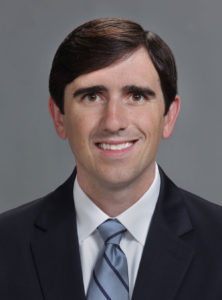Frozen Shoulder Specialist

Are you experiencing a stiff shoulder? If so, you may be suffering from a condition known as adhesive capsulitis, also known as frozen shoulder. Frozen shoulder typically affects patients between the ages of 40 and 60 years, and females are much more likely to develop this condition than males. Frozen shoulder specialist, Dr. Robert Boykin provides diagnosis and both surgical and nonsurgical treatment options for patients in Asheville who are suffering from stiff or frozen shoulder. Contact Dr. Boykin’s team today!
Adhesive capsulitis, more commonly known as “Frozen Shoulder”, is a progressive shoulder pathology causing stiffness and pain. This condition may also be associated with significant pain when trying to move the shoulder or perform daily activities. Adhesive capsulitis can be caused by small repetitive trauma and overuse or may be seen after an acute injury or after a surgical procedure. Some patients, such as those with diabetes, are predisposed to developing this condition while in others the cause is not fully understood. Patients will develop scar tissue that limits the range of motion of the shoulder and causes pain. A frozen shoulder is initially noticed with slight pain and limitations in performing sports or normal activities, and eventually progresses to a more constant pain and difficulty moving the shoulder. Shoulder specialist Dr. Robert Boykin focuses on treating patients in Asheville, Arden, Fletcher and surrounding North Carolina communities who have sustained frozen shoulder symptoms.
Symptoms of Frozen Shoulder
Commonly, the initial symptoms of a frozen shoulder are mild pain and limited range of motion of the joint. This may progress to more severe pain and eventually extreme limitations in motion. Common complaints are the inability to perform daily tasks such as brushing your hair, putting on a jacket, or buckling a seatbelt.
How to Diagnosis Frozen Shoulder
If adhesive capsulitis is suspected to be the cause of your shoulder pain, Dr. Boykin will perform an examination of the shoulder to rule out any other possible injuries. In patients with rotator cuff tears or other causes of shoulder pain who have trouble with active motion (when the patient moves the shoulder) the doctor will still be able to move the shoulder through a passive range of motion. In patients with adhesive capsulitis both active motion and passive motion will be limited. He will also perform an X-ray and possibly an MRI to further confirm the diagnosis. If Dr. Boykin finds that you are suffering from a frozen shoulder, the severity of the condition will be discussed followed by your options for treatment.
For the early onset of adhesive capsulitis, conservative measures can be taken including proper icing, aggressive stretching of the joint, and rest. Dr. Boykin may also recommend formal physical therapy, which has been proven to aid in the treatment of frozen shoulder.
Surgical Treatment for Frozen Shoulder
If rest and physical therapy do not help to ease the pain and improve range of motion of the shoulder, Dr. Boykin may recommend surgery. The surgery will most likely be performed arthroscopically with small incisions, a camera, and special instruments. Prior to the surgery and while the patient is under anesthesia, Dr. Boykin may attempt to perform a “manipulation” technique in which he will manually move the shoulder to break the scar tissues. This at times may be enough to restore motion, while in the majority of cases a surgery will be needed to release the scar tissue that is causing the problem. The procedure is known as a capsular release.
For additional information regarding treatment of adhesive capsulitis, please contact sports medicine specialist, Dr. Robert Boykin, orthopedic shoulder, knee, and hip surgeon serving Asheville, Arden, Fletcher and surrounding North Carolina communities.
